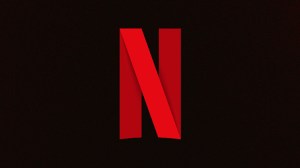
Tonight at Aw Yeah Comics in Skokie, IL, Thrillbent co-founder and beloved comics writer Mark Waid will celebrate the twentieth anniversary of his award-winning miniseries Kingdom Come by signing along with Alex Ross, the series’ artist and co-plotter who has also worked on such projects as Marvels, Superman: Peace on Earth and JSA: Thy Kingdom Come with DC Chief Creative Officer Geoff Johns.
Videos by ComicBook.com
The signing will take place from 2 p.m. to 5 p.m. tonight; they’ll be selling copies of a recently-released anniversary hardcover of Kingdom Come there, allowing fans to have a limited number of their own non-purchased books signed, and accepting non-perishable food donations for a local pantry.
Waid joined ComicBook.com to take advantage of the occasion to look back on Kingdom Come, 20 years later.
I’ve read probably a dozen interviews over the years about Kingdom Come. I know that this was an idea that Alex brought to you and you refined. Was it difficult for you guys selling DC on it, or given the pedigrees was that the easiest part of the whole project?
Given Alex’s pedigree, it was the easiest part of the project. It was pretty much locked by the time I got on board because, remember, I didn’t have a pedigree twenty years ago. I had the beginnings of a career on Flash and I had a lot of Impact comics under my belt, but I didn’t really have much of a pedigree. They took a little bit flier on me, but I’m thrilled it paid out.
Your run on The Flash is how I both came to know The Flash and also you really, but the first thing I think I read of yours was Secret Origins, the first trade paperback I had as a kid.To me, it was like you go from Secret Origins to Kingdom Come and it’s an easy enough straight line to draw because you’re dealing with what’s at the core of these characters.
There’s a through line between the two. That’s actually one of the reasons I was brought to the table to begin with, is that Alex specifically was asking for somebody who was well versed in the DC universe so that as we looked towards its future, we fully understood its past, that we were drawing from a good solid foundation. That as much as anything is what got me the job, is that I know my DC characters.
Luckily so did Alex. That was a great part of the fun of Kingdom Come — sitting down for hours at a time, sort of going back and looking at the earliest adventures and the earliest conceptions of these characters, building off that, talking these ideas back and forth, and totally deconstructing them.
It’s very important to us to not just take whatever understanding of the character was popular in that exact moment in comics, but instead reach back through all of comics history.
Kingdom Come is widely considered one of, if not the best DC story of the 90s. Do you think that because you were trying to take the long view, this still would have been, plus/minus 5%, the same book if it was made in 2002?
I don’t think so, because a lot of what we were reacting to was the gestalt of the mid-90s in superhero comics, the idea that all of the new characters who were harsh and violent and beating up on each other without a real sense of humanity to them, that somehow those were more popular and more vital than what was perceived as the old fashioned bar. Your dad’s superheroes, Superman and Batman and Wonder Woman and those old fogies. That was really very much what we were reacting against.
I think that, in that sense, it was very much a moment in time. I don’t think that book would’ve had the same feel or impact. I think we would’ve been reacting to different things if it had been told in a different era.
Kingdom Come being a really formative book for me. When I was a teenager is when I really got into reading comics; I didn’t read them as a little kid very much. I came up with Dan Jurgens’s Superman and your Flash and Kingdom Come was really seminal. For me, I watch Batman V Superman and I watch Civil War, and I’m just like, “I just don’t care about superheroes punching other superheroes.” On a visceral level it doesn’t appeal that much to me.
Yeah, it never really appealed to me. I’m not going to knock the fans who have enjoyed big superhero donnybrooks, but this is just me personally speaking. I never understood why you would want to have a story with two heroes fighting when you can have a story with the two of them teaming up and doing something cool. That was part of our thinking going in, too.
I still to this day get an itch when I read or start to write, by accident, a story in which it’s just superheroes versus super villains without any human beings in play, without any sort of consequence to the world or without any consequence to the average person. That feels like a WWE wrestling match and not an actual story.
It’s funny: I seem to recall that when you guys did the Superman 2000 pitch, that part of the pitch was that the supporting cast had gotten too unwieldy. Again, I could be wrong. I know that was Jeph Loeb’s position when he took over that book.
That was our take too, yeah.
Is it difficult, do you think, to find that balance? I think that we’ve gone completely the other way now, where most Marvel and DC comics have basically no supporting cast because it’s all jumping from event to event and superhero fights to superhero fights. Pete Tomasi’s current Superman story is really well done, but we’ve seen Batman interacting with Superman more than Lois has.
Right, exactly. Perry White and Jimmy Olsen are nowhere to be see, exactly. Again, that’s not a criticism of his story…
Right. I was just using it as a for-instance.
Right, exactly, but that’s a fair assessment. I think that the event mentality, the idea that we’re lurching to big event to big event does make it hard to do the stories that are a little more grounded in the status quo.
It’s not just the events, it’s that there’s also the constant pressure to move away from the status quo, to keep it quote-unquote exciting by moving away from the status quo. Of course, the status quo is the supporting cast.
There are books that pull it off beautifully still today. Ms Marvel does a great job of it. There’s a book with a strong supporting cast and the book wouldn’t be the same without it.
Kingdom Come is, by its nature, anathema to having a status quo at the start of the story, because the whole idea is that the world has been shaken for a decade and a half or whatever it is. Do you think that that’s an underestimated part of what you were recoiling against, was this idea that we have to constantly shake things up?
That’s a really good point. Honestly I never thought of it that way. If it can be interpreted that way then there may be something to it.
Has it been interesting to you, the way that your takes on these characters have informed what’s come in the last 20 years? Obviously we now have a generation of people who are coming up who are writing for whom Kingdom Come is kind of a key piece of the comics canon.
Yeah, that terrifies me. [Laughs] Not because I’m protective of it. Not because I feel like it’s our toy and nobody else should play with it. That’s not it at all.
It’s just the idea that I see some touches of Kingdom Come here and there that are well thought out and well executed and make me feel good, and I see other places where they just ignore the fact that it’s supposed to be a cautionary fable. It’s not supposed to be like this!
We weren’t saying Lois should die and Superman and Wonder Woman should together for ever and ever. That wasn’t the point of the story; that was unintended consequences. Every once in a while somebody will make a choice and defend it as, “Well, it’s the way it was in Kingdom Come,” to which you just want to go, “No! No, that was a cautionary fable!”
In this weird way, you’ve really influenced the direction of this character with an Elseworlds story that was never really meant to be canon. Is that strange, especially when you compare it to things like Birthright where it’s like, “Yeah, that was the origin of Superman for fifteen minutes.”
Right, exactly, yes. I know it is weird that my greatest pass on Superman might, when all is said and done, might end up being the thing that was an Elseworlds where he was many years on and retired and had to be coaxed out of retirement.
Look, no matter what form it takes, or no matter what story it was in, if I was able ever to contribute something to the Superman canon or to do something to make a good Superman story, I am very honored.
Over the years, I’ve talked about this with people and I’ve never heard you address it. Superman being older and retired and everything. When you look at Kingdom Come, a lot of people compare it to say, The Dark Knight Returns. What do you think it is about that kind of latter day set up that really resonates with people?
I think it’s that … We keep talking about superheroes being an American mythology, which is a line that’s spoken frequently. You’ve heard that analogy.
The thing about myths is that they have a beginning, a middle, and an end. Robin Hood shoots his arrow into the air. King Arthur returns to Camelot. There are ends to myths. I think that’s why some of these stories, some of these Elseworlds-type stories have real resonance because it’s a chance to tell a definitive end to Batman’s career, sort of a definitive end to Superman’s career that bookends everything. I think that’s the draw of that sort of thing.








